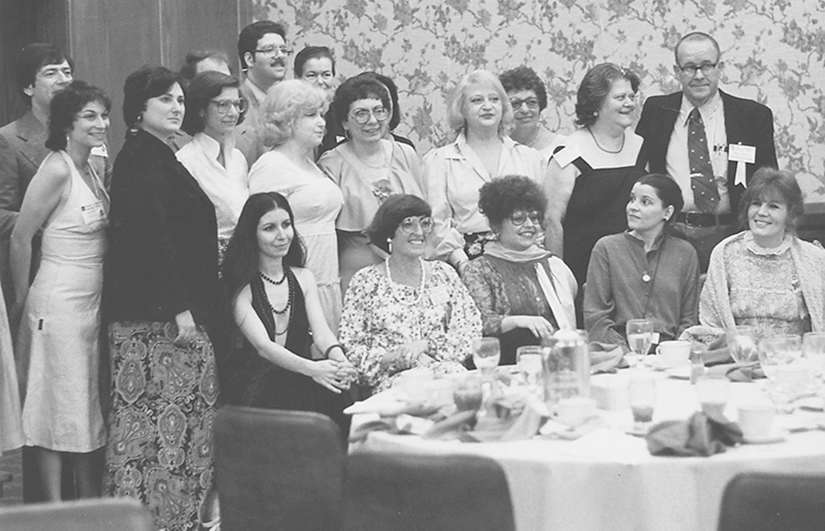Preserving Mensa’s Past
- Feb 1, 2022
- Simone van Egeren, AML History Committee Chair
History Task Force collecting records and documents, urges Local Groups to do likewise

“I have great respect for the past,” observed Maya Angelou. “If you don’t know where you’ve come from, you don’t know where you’re going.”
At the Sept. 29, 2018, AMC meeting, the board voted to create the AML History Task Force dedicated to the unbiased collection and archiving of historical data regarding American Mensa, Ltd. From the first meeting in 1960 to the present day, there has been no central catalog of historical documents relating to American Mensa. The AMC recognized the value of establishing an instrument for preserving and organizing our organization’s records and creating an accessible inventory. Howard Prince was the first chair of the AML Task Force; and, when he stepped down in 2020, I was asked to accept the position and was confirmed by the AMC in November 2020. Currently, there are seven committee members, with Region 10 Vice Chair Thomas Thomas also acting as our liaison to the AMC.
Why should we care about Mensa’s history? Every entity, whether it be an organization, club, community, or person, has experienced challenges, achievements, and failures. When we understand how events and people influenced our past, we can better shape our future. Documents are witnesses to the past, written by the people who came before us. When we preserve these records, they may illuminate the reasoning for past decisions that affect us today and offer ideas long forgotten that can present solutions to issues currently encountered.
I have always been intrigued by history and prefer diaries to biographies; the “I was there” viewpoint is more compelling to me than a noncontemporary account of a life or event. Historical records are the diaries of an organization and the foundation of archives. American Mensa boasts a fascinating history, from its Brooklyn office of one dedicated woman to the staff of National Office professionals and the AMC we have today. At times, it’s been a bit of a bumpy ride, but 62 years later, we are still going strong.
Our members are the bedrock of Mensa, and Local Groups are the places they call home. Each chapter has traveled its own journey, and the stories are often remarkable. While some chapters have volunteers who preserved their histories, many have not, and those records might be lost forever if no action is taken. Recently, I’ve been contacted by some members who want to explore preserving their Local Groups’ past. While the AML History Committee cannot digitize a chapter’s records, we will gladly be a resource to offer guidance and suggestions. We hope to integrate Local Group histories in the archive catalog, including listing all available chapter newsletters.
Without our members, there is no AML, and Local Group records show that bond in a powerful way. As archivist for San Diego Mensa, I’ve found our Local Group newsletter a treasure trove of information for not only our history but American Mensa’s. Records relating to AML are scattered throughout our archives and will be forwarded to the History Committee as they are discovered and digitized. Many chapters have yet undiscovered information that might add to our institutional knowledge.
It saddens me when I hear of long-term members (or their families) who have disposed of their personal collection of Mensa documents. So many of these items are unique, contemporaneous records and, once lost, cannot be replaced. One of the goals of our committee is to build a path for members and families to contribute their records for evaluation and possible addition to the collection of Local Groups or the AML archives.
Under Howard’s leadership, the committee began the work of locating which AML documents were available and creating a guide for areas of focus. The list is extensive and continues to evolve as we review digital items and print artifacts for inclusion. The catalog will also encompass registers of leadership history, AML meetings, and awards and extend Vince Bonzagni’s Book of Lists. We’re still beginning to find out what we have, what’s out there to add to the collection, and then catalog all the items.
The committee’s function is much more than simply collecting data but is an exchange of information and efforts that benefits all of Mensa. There are many distinct tasks and projects that can be completed only with the involvement of members throughout our organization willing to volunteer, both on the local and national portions of our mission. If you’d like to learn more or join with the AML History Committee’s mission to preserve the legacy of American Mensa, please contact us at MensaHistory@us.mensa.org.
